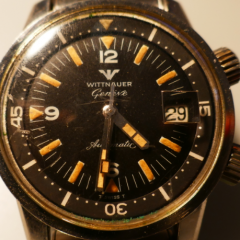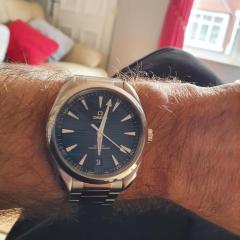-
Recently Browsing
- No registered users viewing this page.
-
Topics
-
Posts
-
Just a note for those who come searching for information on this topic in the future. I did eventually find the Mark's video on how to replace these springs, as someone observed, he does in fact make the replacement look easy. (It actually is relatively easy once you have the knack of it.) If you're enrolled in one of Mark's online courses, the demonstration of how to replace this spring is in the Bonus Videos section of his course site, and is called "C2B1 – Sea-Gull Style Shock Springs".
-
By RichardHarris123 · Posted
If the metal was twice as thick, it wouldn't snap so easily. The thickness is governed by the space available so you can't use thicker metal. If you glued two pieces together, the likelihood of snapping would be reduced. That's my theory anyway, could be wrong. -
there are various approaches to learning watch repair. A lot of people want to jump right in and every single watches something to be repaired restored. But other times like this it's disposable it's here for you to learn and when you're through learning you throw it away. yes you definitely should try this you have a learning movement you need to learn and the best way to learn is by doing something.
-
By nevenbekriev · Posted
Sorry, the friction will be so great that the wheel will barely turn, if the movement will start at all, the amplitude will be verry lo. -
If I can’t re-pivot the wheel, the logical thing to do is to descend the pivot hole. Plan is to either stick a suitably sized hole jewel (from a barrel bridge or something) or fashion a blob of epoxy on the underside of the escape wheel cock so the wheel sits on its one pivot on the base plate and the staff with the broken off pivot (which I’ll polish as best as I can) becomes the upper pivot. As long as it doesn’t foul the 4th wheel it should work? I know it’s a bodge job, and if this were a rare movement, or belonged to someone else I would not do this. I’m just interested to see if I can get the thing to run.
-






Recommended Posts
Join the conversation
You can post now and register later. If you have an account, sign in now to post with your account.
Note: Your post will require moderator approval before it will be visible.